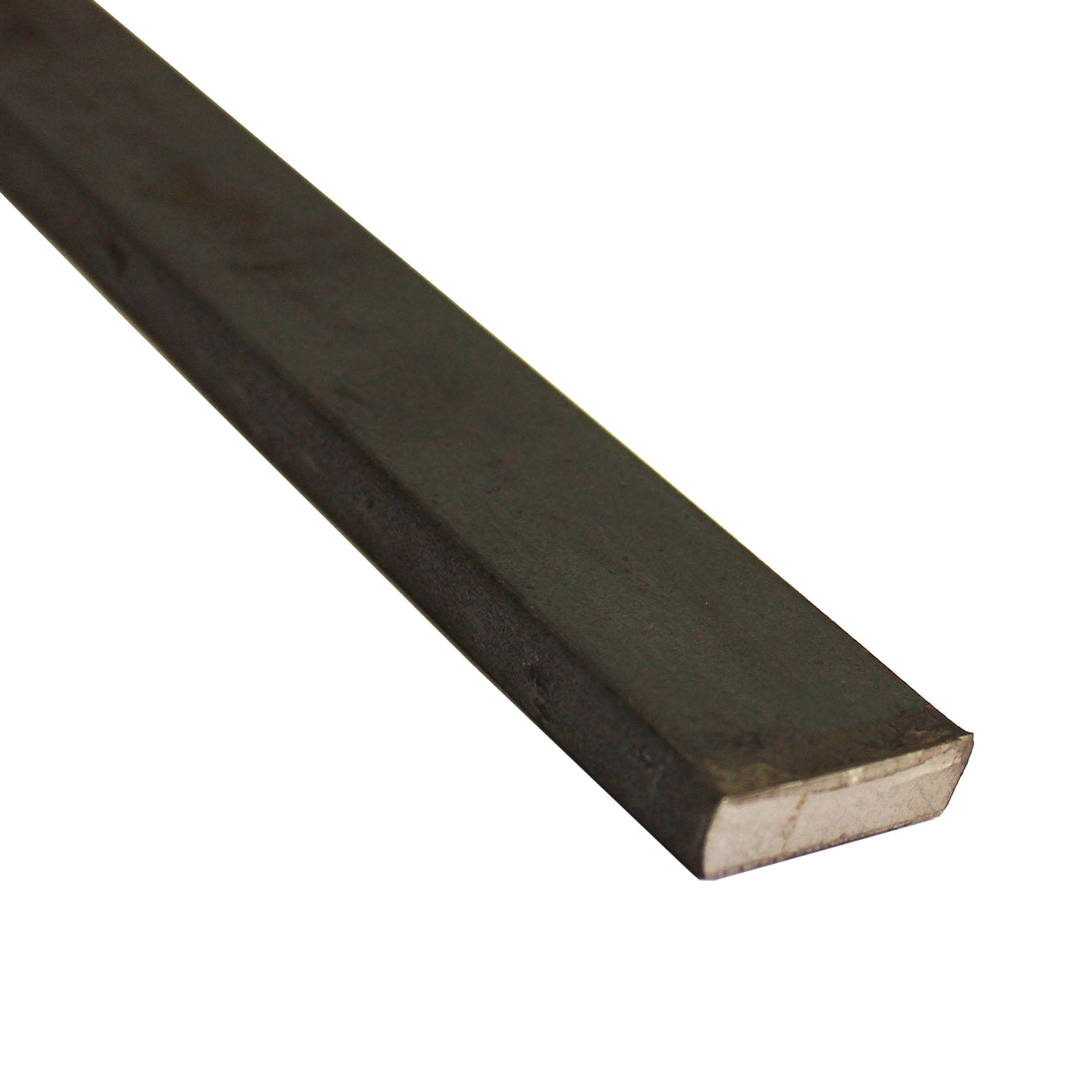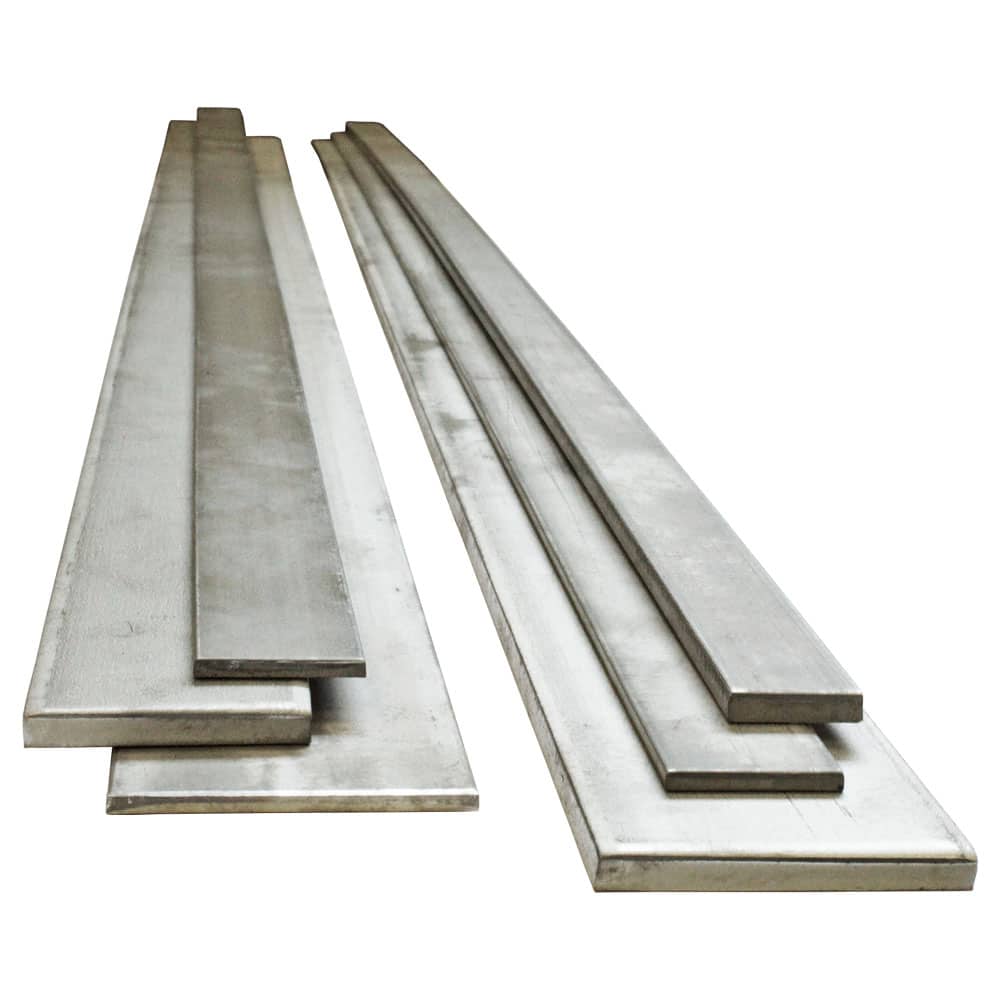- Massive Range
- FREE UK Delivery
- Rapid Dispatch
- Massive Range
- FREE UK Delivery
- Rapid Dispatch
- Massive Range
- FREE UK Delivery
- Rapid Dispatch
£14.99 – £24.99 inc VAT


This website is secured:
✔ Specialists In Rapid Shipments Of Any Size
✔ FREE UK Delivery Included
✔ Immediate Express Dispatch From Stock
✔ Tracked Delivery with Order Updates
✔ 30-Day Returns Accepted
@ ☏ Bespoke Sizes & Larger Sheets Available
Are you looking for a versatile material that offers durability, flexibility, and resistance to the elements? Take a look at aluminium strips! Speciality Metals offers these metal flat bar strips in various lengths and dimensions, all of which measure 50.8mm in width and 6.35mm thick. Furthermore, they are corrosion-resistant and can withstand harsh weather, chemicals and heat, as well as having excellent heat and electricity conductivity. If hygiene is a concern for you, these strips have a hygienic profile. Plus, they’re lightweight and recyclable. For a reliable and efficient solution, consider aluminium strips!

We offer a wide selection of flat strips aluminium bar online from trusted mills in the UK. Providing high-quality, low-priced aluminium flat strip products to UK businesses and the general public, Speciality Metals is a leading aluminium metals supplier.
Speciality Metals offers a range of durable and corrosion-resistant strips aluminium in various lengths, ideal for a variety of applications. With a width of 50.8mm and thickness of 6.35mm, these metal flat bar strips provide excellent resistance to weather, chemicals and heat, making them ideal for outdoor environments. Aluminium is an excellent conductor of heat and electricity, making it the go-to material for many industrial and manufacturing processes. Additionally, its hygienic properties, lightweight and flexibility make it a popular choice for food and medical applications. Best of all, aluminium is 100% recyclable, making it an eco-friendly option for any project. Trust in Speciality Metals for all your aluminium needs.
Over 50,000 customers of Specialty Metals are provided with fast, friendly customer service every year. We’re the place to try when you need metal of any shape and size. We’re based in Warrington, UK. We pride ourselves on our rapid turnaround and a large range of options.
Key product details:
Flat bar strip is also available in mild steel and stainless steel.
Speciality Metals are the best suppliers for you because:
Aluminium strips are manufactured through a multi-step process that starts with the raw material, aluminium, and culminates in the creation of thin, uniform strips. Initially, large blocks or billets of aluminium are heated to a specific temperature to make them more pliable. Once heated, these billets are then subjected to hot rolling, where they are passed through heavy rollers that flatten and elongate them into thinner sheets. After hot rolling, the sheets undergo cold rolling, a process where the aluminium is further thinned at room temperature using roller presses until the desired thickness for the strips is achieved. The resultant sheets are then slit into narrower widths to produce the aluminium strips. Throughout this process, attention is given to maintaining a consistent thickness, straightness and surface quality. Post-rolling treatments, like annealing, may also be used to relieve stresses and achieve desired mechanical properties. The final aluminium strips can be subjected to further surface treatments or coatings as required by specific applications. This systematic process ensures the production of high-quality, consistent aluminium strips for a myriad of uses.
Yes, there is a risk of galvanic corrosion when aluminium strips (or any aluminium product) come into direct contact with certain other metals in the presence of an electrolyte, such as saltwater. Galvanic corrosion occurs when two dissimilar metals with different electrode potentials are electrically connected in a corrosive environment.
Aluminium is generally more anodic than many common metals, meaning it will tend to sacrifice itself to protect the other metal. When aluminium is in contact with a more cathodic metal (like copper, for instance), the aluminium corrodes at a rate faster than it would on its own, while the other metal remains largely unaffected.
To mitigate the risk of galvanic corrosion:
It’s essential to consider the risk of galvanic corrosion in design and construction, especially in marine or humid environments, and take preventive measures to ensure the longevity of the structure or product.
Absolutely, aluminium strips can effectively serve as a base for various adhesives, owing to the metal’s inherently good adhesive bonding properties. However, for optimal bonding, the surface of the aluminium strip needs to be properly prepared. Firstly, it’s essential to clean the aluminium surface to remove any oils, dirt or oxide layers, typically using solvents or mild acid solutions. This ensures that the adhesive bonds with the aluminium itself and not with contaminants or unstable oxide layers. Once cleaned, using a suitable primer can further enhance the adhesive’s grip on the aluminium surface. It’s also crucial to choose adhesives that are known to be compatible with aluminium, such as epoxy resins or certain polyurethanes. When these preparation steps are taken, aluminium strips can provide a strong and durable base for adhesives, making them suitable for a wide array of applications ranging from construction to crafts.
Check out our blogs discussing stainless steel metal strip and mild steel flat bar. It will prove a useful read to help you to make an informed decision on which material would work best for you.
We are also very proud of our ever expanding YouTube channel.
Our goal for our blogs, videos and help guides is to answer as many questions as possible to help to explain the possibilities of mesh to our customers. Contact us today if you have any questions at all. We are always really keen to help in any way that we can.
We are also very proud of our highly popular eBay store, check us out there too.
Thank you for checking out our product.
£10.99 – £19.99 inc VAT
£11.99 – £34.99 inc VAT

£10.99 – £19.99 inc VAT

£11.99 – £34.99 inc VAT
Speciality Metals
Unit 1, Farrell Street, Warrington,
Cheshire, WA1 2WW, United Kingdom
Quick Links
Payment Options
